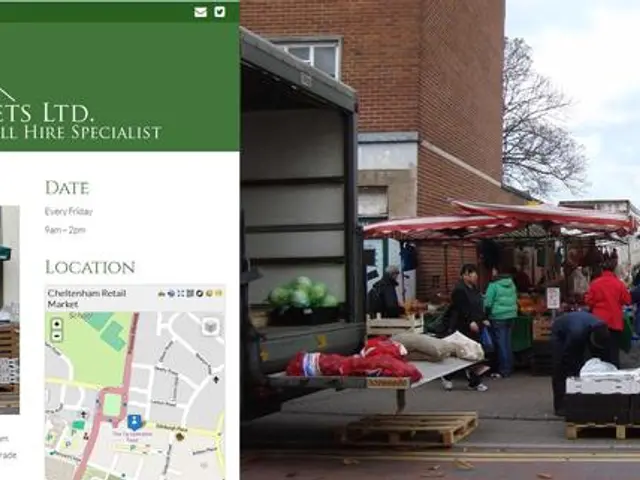Retail vacancies on main streets have reached one out of every seven shops... traditional fixes for a failing system aren't enough - what's needed is a drastic overhaul
The UK high street, a symbol of community and economic vibrancy, is facing unprecedented challenges. Despite accounting for just 5% of the UK economy, retail pays more than 20% of all business rates, a burden that has been exacerbated by the rise of online shopping and the digital giants' lower tax burden.
Retail is the UK's largest private employer, supporting three million jobs. However, since 2015, the sector has shed around 350,000 jobs, and the health of the high street continues to be a bellwether for the health of the wider economy. This year, store closures are expected to reach an all-time high of around 17,350, equating to nearly 50 shops closing per day.
The loss of shops has an immediate impact on the community, affecting public transport, housing demand, health outcomes, local policing, and the vibrancy of town centres. Moreover, the pandemic has accelerated the shift towards online shopping, with online sales more than doubling in the past decade.
Theo Paphitis, a well-known businessman and owner of Ryman, Robert Dyas & Boux Avenue, has emphasized the need for a modern, fair retail tax that reflects how people shop and rewards investment in jobs and premises.
A fair and modern retail tax system would move beyond taxing physical retail spaces based on outdated property-centric business rates and instead consider how consumers shop today. This system would tax retail activity in a way that accounts for both physical and online sales volumes, replacing or reforming business rates based on property value.
Such a system would also provide incentives or tax reliefs for retailers investing in job creation and maintaining or improving premises. This recognition of retail's major role as a private employer and key driver of local economic wellbeing and community vitality is crucial.
Additionally, the tax burden on retail should support sustainable economic growth by encouraging investment in research, experimental costs, and infrastructure. Modernizing tax rules to keep pace with digital services and interstate commerce is also essential.
In summary, a modern retail tax system would incorporate both brick-and-mortar and online retail sales fairly, replace property-based business rates with activity- or revenue-linked measures, reward investment in jobs, premises upkeep, and R&D, ensure digital retailers contribute fairly to public funding, adapt to complexities of digital commerce and multi-jurisdictional tax rules, and encourage investment in research, experimental costs, and infrastructure.
The Government must ensure that no shop pays more in the upcoming Autumn Budget and update the tax regime to better suit the current era, as it was designed before supermarkets, retail parks, and the internet. This approach aligns with recent critiques and calls in the UK retail sector for fairness reflecting modern shopping and investment realities.
In light of the challenges facing the UK high street, there is a need to reform the retail tax system to better reflect how people shop today. A modern retail tax system should consider both physical and online sales volumes, incentivize job creation and investment in premises, and support sustainable economic growth through research and infrastructure.
Moreover, the tax burden on retail should be fair and ensure digital retailers contribute equally to public funding, as traditional brick-and-mortar stores face burdensome business rates and shutdowns. It's crucial for the government to update the tax regime to suit the current era, acknowledging the significant role retail plays in employment, economic wellbeing, and community vitality.



